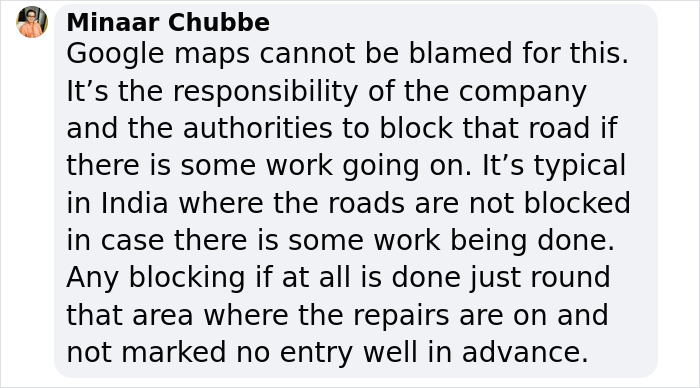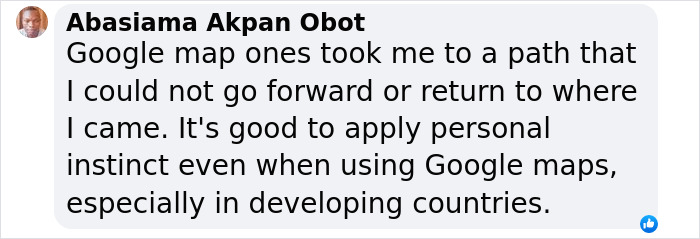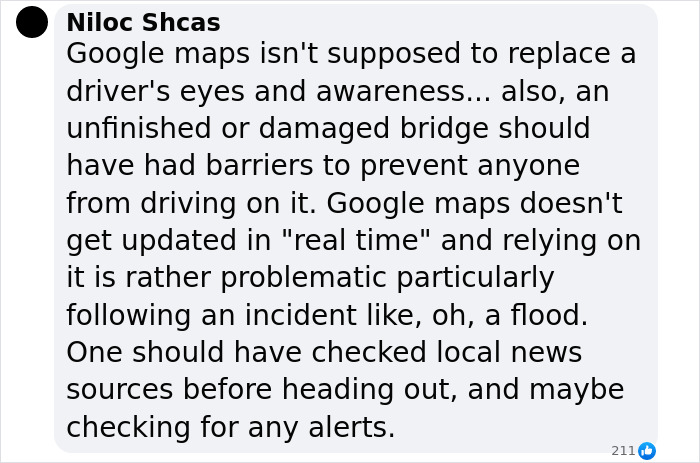It is believed the three commuters were following directions provided by Google Maps, leading them onto a high-speed overpass in the Indian state of Uttar Pradesh.
The victims were identified as brothers: Amit, 40, Nitin, and Ajit, both aged 30.
The siblings were reportedly unaware that the overpass led to an unfinished bridge, which had a 50-foot drop into the shallow Ramganga River below.
Three brothers died after their car plunged off an unfinished bridge in Bareilly, Uttar Pradesh, on November 23
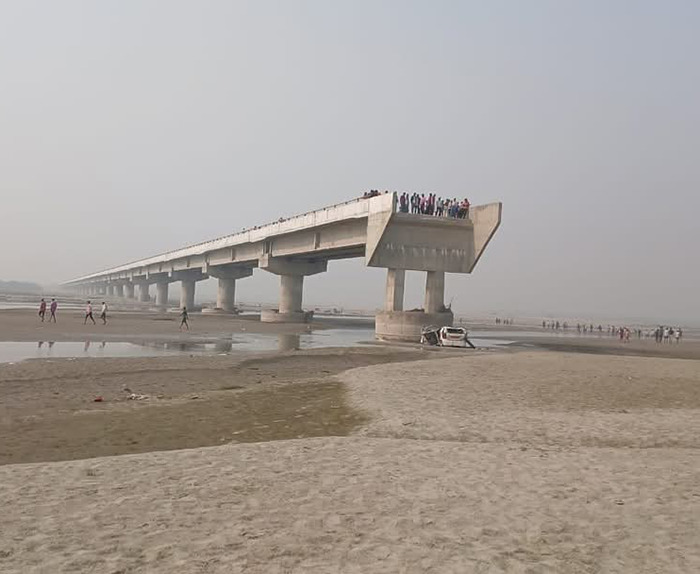
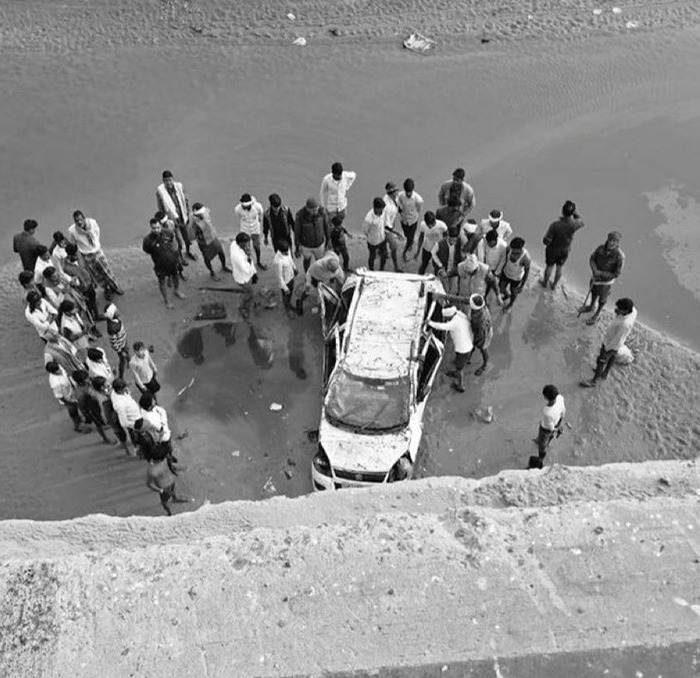
The wreckage was discovered by locals the next morning, bringing attention to a chilling intersection of technology missteps and infrastructure neglect.
The incomplete bridge, a casualty of earlier floods, lacked basic warning signs or barricades to signal danger.
While locals were aware of the bridgeâs condition and avoided it, the three outsiders were unfamiliar with the area and simply followed the directions provided by Google Maps.
Local authorities have since launched an investigation and filed a police complaint. Four state road engineers and a Google Maps official were named on charges of culpable homicide in the police complaint.
The victims were reportedly following directions provided by Google Maps, leading them onto a dangerous and unfinished overpass
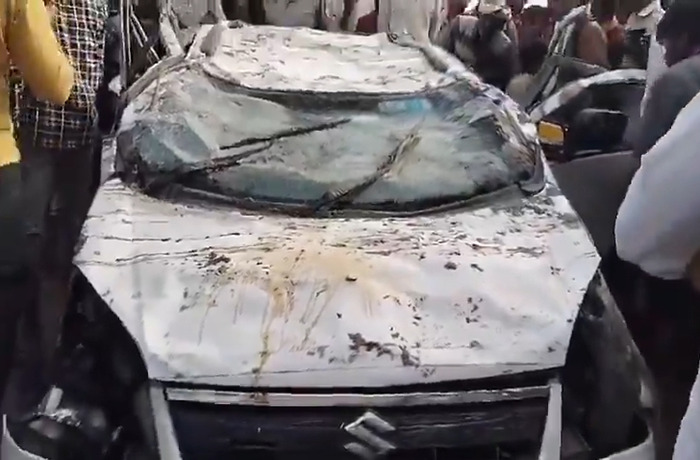
Bareilly Google Map Accident:बरà¥à¤²à¥ मà¥à¤ हà¥à¤ à¤à¤ हादसॠà¤à¥ à¤à¤°à¥à¤à¤¾ à¤à¤¸ समय पà¥à¤°à¥ दà¥à¤¶ मà¥à¤ हॠरहॠहà¥. यहाठबà¥à¤¤à¥ रविवार à¤à¥ à¤à¤ à¤à¤¾à¤° पà¥à¤² सॠरामà¤à¤à¤à¤¾ नदॠमà¥à¤ à¤à¤¿à¤° à¤à¤ à¤à¤° à¤à¤¸ दरà¥à¤¦à¤¨à¤¾à¤ हादसॠमà¥à¤ तà¥à¤¨ लà¥à¤à¥à¤ à¤à¥ मà¥à¤¤ हॠà¤à¤. दà¥à¤¸à¤°à¥ à¤à¤° सà¥à¤¥à¤¾à¤¨à¥à¤¯ पतà¥à¤°à¤à¤¾à¤° नॠबà¥à¤¤à¤¾à¤¯à¤¾,’ठà¤à¤¿à¤²à¥à¤¶ सरà¤à¤¾à¤° मà¥à¤ à¤à¤¯à¤¾ था पà¥à¤² बनानॠà¤à¤¾ à¤à¤¦à¥à¤¶, फिर⦠pic.twitter.com/0XFwv4tDAt
â UP Tak (@UPTakOfficial) November 27, 2024
A Google spokesperson acknowledged the incident and said they were cooperating with the investigation.
âOur deepest sympathies go out to the families,â the spokesperson said. âWeâre working closely with the authorities and providing our support to investigate the issue.â
The incident has reignited debates about the reliability of navigation apps and their role in ensuring user safety.
Some pointed fingers at the app for failing to update road conditions, while others argue the greater blame lies with authorities for leaving a hazardous site unmarked.
At its core, Google Maps relies on data from usersâ GPS signals, satellite imagery, government updates, and crowd-sourced information to track traffic and road changes.
However, according to Ashish Nair, a former Google employee and founder of mapping platform Potter Maps, maintaining up-to-date maps is a Herculean task.
Four state road engineers and a Google Maps official face charges of culpable homicide following the incident
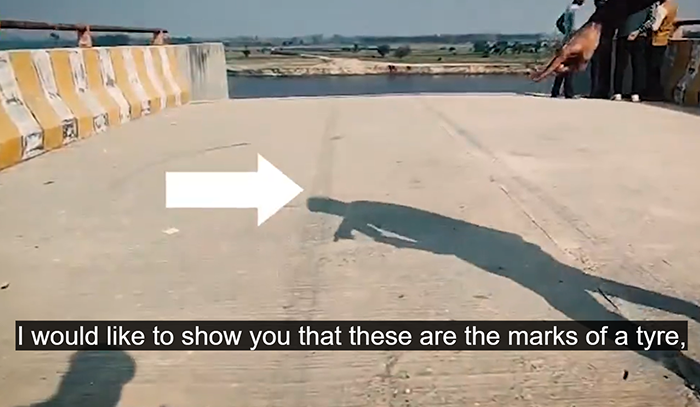
Image credits: UPTakOfficial
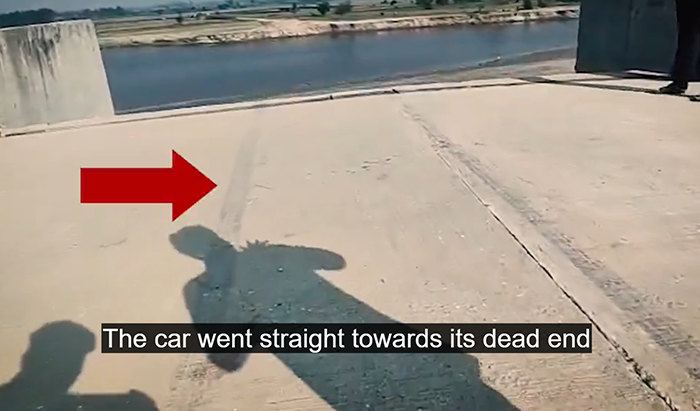
Image credits: UPTakOfficial
Google does not have the manpower to deal with the millions of complaints that come streaming in every day from users about traffic jams and closures. Hence, priority is given to notifications from authorities.
âA map operator then uses satellite imagery, Google Street View and government notifications to confirm the change and update the map,â he told the BBC.
He further highlighted that Googleâs terms of service clearly state that users must exercise judgment while on the road, as the app-provided directions may not always be accurate. This means that Google cannot be held accountable for such accidents or mishaps that take place on the road.
Ashish also said that for a country like India, which has numerous issues with road infrastructure, there is no system where changes or closures can be reported on time.
The bridge, damaged by earlier floods, had no barricades or warning signs
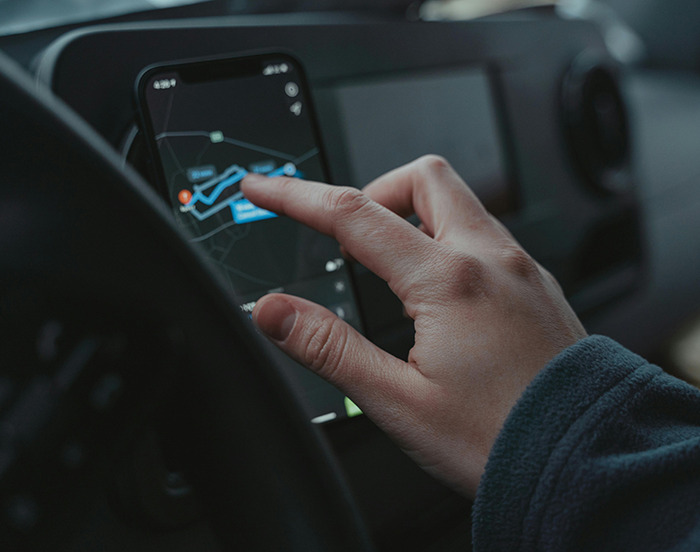
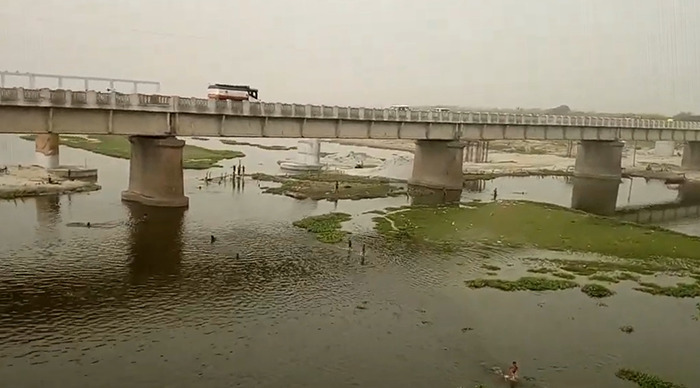
âData remains a big challenge in India. There is no system for infrastructural changes to be logged into a web interface, which can then be used by apps like Google Maps. Countries like Singapore have such a system,â he told the outlet.
The countryâs burgeoning population and rapid development only add to the problem of maintaining accurate, real-time data on navigation apps.
âIn other words, bad maps are here to stay until governments become more proactive about collecting and sharing data,â he said.
The recent accident, which claimed the lives of the three men on Sunday, was not the first mishap of this nature to occur in India. Last year, two doctors lost their lives in the state of Kerala after their car plunged into the Periyar River. The doctors, too, were following Google Maps at the time.
âOur deepest sympathies go out to the families,â a Google spokesperson said following the incident in Uttar Pradesh, India
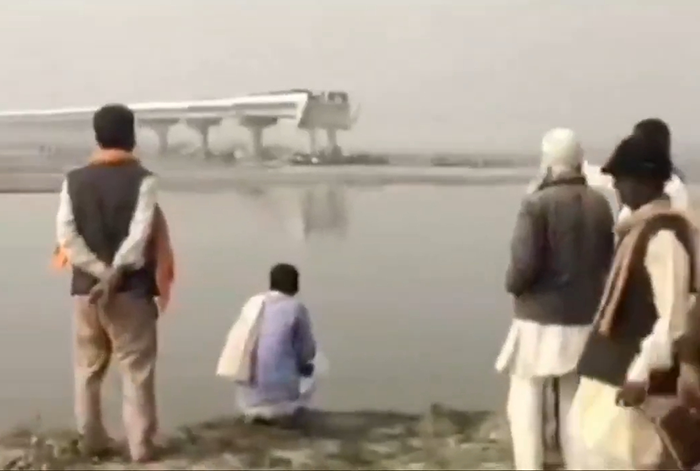
थाना फरà¥à¤¦à¤ªà¥à¤°, बरà¥à¤²à¥ à¤à¥à¤·à¥à¤¤à¥à¤°à¤¾à¤¨à¥à¤¤à¤°à¥à¤à¤¤ निरà¥à¤®à¤¾à¤£à¤§à¥à¤¨ पà¥à¤² सॠà¤à¤ à¤à¤¾à¤° à¤à¥ à¤à¤¿à¤°à¤¨à¥, à¤à¤¿à¤¸à¤®à¥à¤ à¤à¤¾à¤° सवार 03 वà¥à¤¯à¤à¥à¤¤à¤¿à¤¯à¥ à¤à¥ मà¥à¤¤à¥à¤¯à¥ हॠà¤à¤¾à¤¨à¥ à¤à¥ सà¥à¤à¤¨à¤¾ पर à¤à¥ à¤à¤¾ रहॠà¤à¤¾à¤°à¥à¤¯à¤µà¤¾à¤¹à¥ à¤à¥ समà¥à¤¬à¤¨à¥à¤§ मà¥à¤ à¤à¥à¤·à¥à¤¤à¥à¤°à¤¾à¤§à¤¿à¤à¤¾à¤°à¥ फरà¥à¤¦à¤ªà¥à¤° बरà¥à¤²à¥ à¤à¥ बाà¤à¤à¥¤#UPPolice pic.twitter.com/phDGUsPPNz
â Bareilly Police (@bareillypolice) November 24, 2024
The doctors, Advaith, 29, and Ajmal, 29, mistook the river to be a waterlogged road and drove ahead, causing the car to sink. Three other passengers in the vehicle suffered injuries.
âThe visibility was very low at the time due to heavy rain. They were following a route shown by the Google map. But it seems like instead of taking a left turn as suggested by the maps, they mistakenly went forward and fell into the river,â a local police officer said at the time.
Google Maps recently replaced their speed-trap alerts with what is known as a âPoliceâ tag.
Earlier, the speed-trap option allowed users to flag hidden cops on the road. However, the new update, which recently began working for Android Auto and Apple CarPlay, allows users to report a cop directing traffic or handling a roadside stop, in addition to traffic jams or lane closures.
The internet had mixed reactions to the news, with one saying: âGoogle Maps should not replace eyesâ





